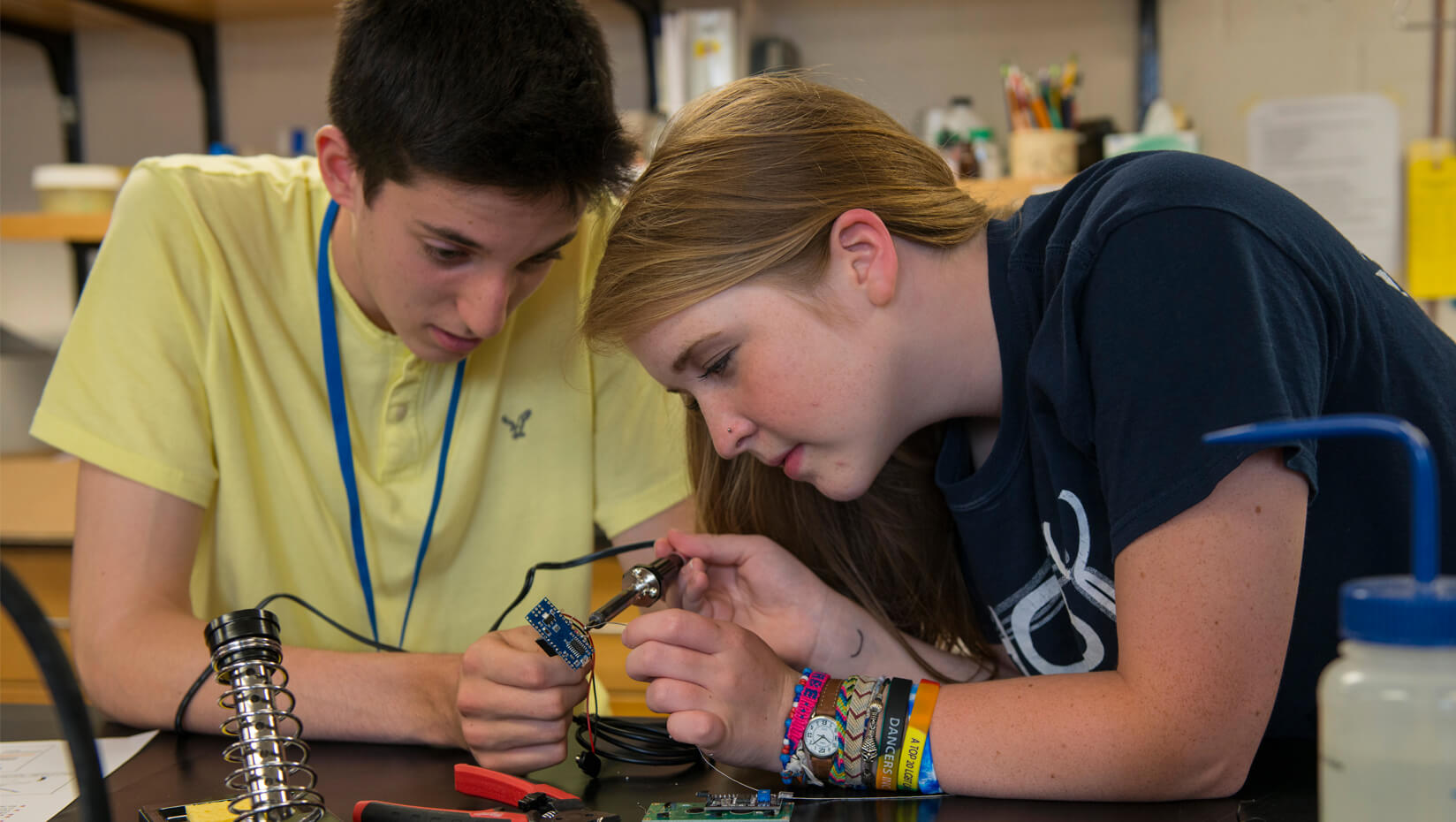
UMaine receives award from new NSF program aimed at broadening STEM
The University of Maine is one of 37 colleges, universities and educational groups nationwide to receive first-ever awards for the National Science Foundation’s INCLUDES program, a comprehensive initiative to enhance U.S. leadership in science and engineering by broadening participation in the fields of science, technology, engineering and mathematics (STEM).
UMaine will receive $300,000 for a two-year pilot project that builds on its successful Stormwater Management Research Team (SMART) program based in the College of Engineering that has created a diverse STEM pathway with community water research. The pilot projects were selected for their potential to deliver prototypes for bold, new models that broaden participation in STEM, according to an NSF news release.
Near the end of the two-year pilot projects, UMaine and the other organizations now in the national INCLUDES Alliance will be eligible to be one of the five initiatives selected for up to $12.5 million each in funding.
NSF INCLUDES (Inclusion across the Nation of Communities of Learners of Underrepresented Discoverers in Engineering and Science) aims to improve access to STEM education and career pathways at the national scale, making them more widely inclusive to underserved populations. Over the next decade, NSF will expand the program, with the goal of developing a science and engineering workforce that better reflects the diversity of U.S. society.
At UMaine, the NSF-EPSCoR Track III funded SMART program is a hands-on, project-based education initiative to engage high school girls and minority students in engineering and sciences. In 2014–15, the initiative trained and engaged 150 high school students and 15 teacher mentors in researching the effects of stormwater pollution. SMART student-mentor research groups are located around the state, including Kittery, Portland, Lewiston, Bangor and Eastport.
The SMART program is “a bold approach to changing the face of the STEM workforce,” says Mohamad Musavi, associate dean of the College of Engineering and SMART project director. “This experiential learning approach is breaking down barriers between K–12 education and higher education institutions, and focusing on applying collective knowledge and workforce immediately in local communities.”
In the new initiative, led by Musavi and Jennifer Isherwood in the College of Education and Human Development, UMaine’s SMART project will be introduced at City College of New York, Mississippi State University, University of South Florida, University of North Carolina at Charlotte and Boise State University.
The goal of the pilot project is to engage an effective system of partners in improving opportunities for women and minority students in STEM fields using stormwater as a topic throughout their education. The collaborative effort will aim to diversify the face of STEM education, focused on particular challenges for women and underrepresented minorities, while addressing a vitally important community environmental issue: stormwater contamination and management and its effect on water quality in both freshwater and saltwater environments. The globally important issues of water quality and stormwater unifies students and easily translates anywhere to active, community-connected research.
Building on these initial awards, NSF INCLUDES will provide networked testbeds for STEM inclusion, connecting participants and enabling them to determine the key components and approaches that lead to sustainable progress at a national scale. NSF INCLUDES will invest in alliances and partnerships that scale up efforts to broaden STEM participation among underrepresented groups, including women, Hispanics, African-Americans, Native Americans, persons with disabilities, people from rural areas and people of low socioeconomic status.
More about the NSF INCLUDES program is online.
Contact: Margaret Nagle, 207.581.3745
